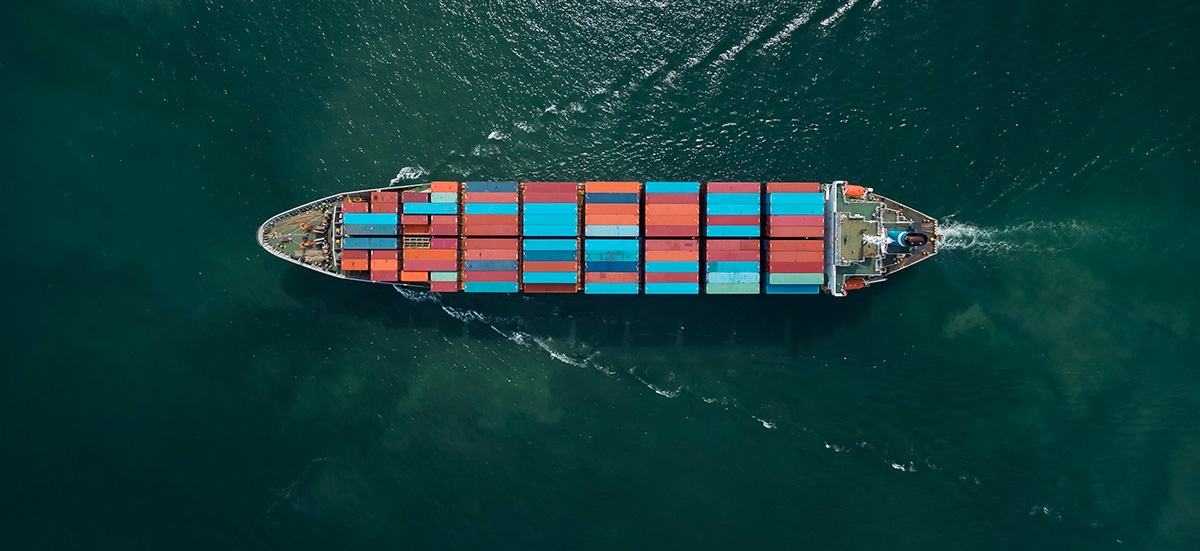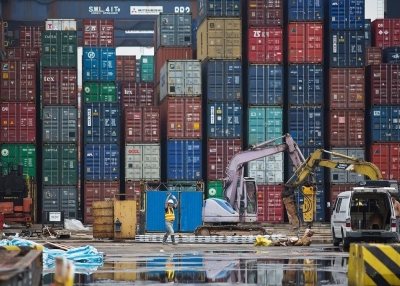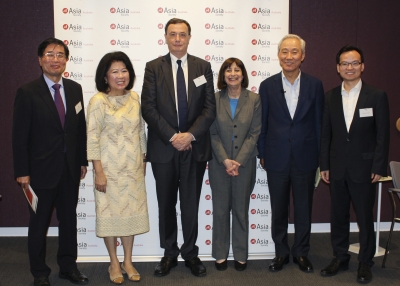Shifting Trade Winds: U.S. Bilateralism and Asia-Pacific Economic Integration
An ASPI Trade Forum Issue Paper

Aerial view of cargo ship, cargo container near Thailand. (Anucha Sirivisansuwan/Getty Images)
One year after the U.S. pulled out of the Trans-Pacific Partnership (TPP), governments across the Asia-Pacific are reassessing their reliance on American economic leadership and the U.S. market. Most notably, the remaining eleven TPP countries have taken the initiative to advance the agreement without the United States, and seek to finalize the deal in early 2018. Meanwhile, as it became clear that its withdrawal from the TPP signaled a more inward-looking U.S. trade policy, countries in the region have picked up the pieces and are now actively pursuing plurilateral and bilateral trade deals within the region, and with major economies around the world.
In light of these new economic and geopolitical realities, the Asia Society Policy Institute (ASPI) established a Trade Forum chaired by ASPI Vice President Wendy Cutler and composed of senior trade experts from across the region to assess the shifting regional trade environment. This issue paper written by members of the Trade Forum offers recommendations to policymakers in the region on how to navigate an increasingly complex Asia-Pacific trade landscape after an unusually eventful year for trade.
This paper is the latest product of the ASPI initiative, “Building a High Standard and Inclusive Asia-Pacific Trade Architecture.” It updates the findings and recommendations made almost one year ago (March 2017) in another ASPI report, Charting a Course for Trade and Economic Integration in the Asia-Pacific.
*This issue paper was originally published on January 18, 2018. An updated version was published on January 19, 2018 and is the version available for download.
About the Authors / Trade Forum Members
Wendy Cutler (Chair) is Vice President of the Asia Society Policy Institute. She served for nearly three decades as a diplomat and negotiator in the Office of the U.S. Trade Representative, most recently as Acting Deputy U.S. Trade Representative.
Charles Finny is a Partner at Saunders Unsworth Ltd. He was previously Chief Executive of the Wellington Regional Chamber of Commerce, and a senior member of the New Zealand Ministry of Foreign Affairs and Trade. He was the chief negotiator at the launch of the China-New Zealand FTA negotiation and for all of the Taiwan FTA negotiations.
Peter Grey is Chair and Non-Executive Director of MLC Limited and Co-Chair of the Japan Business Group at Corrs Chambers Westgarth. He has served as Ambassador of Australia to Japan, the European Union, and the WTO.
Kim Jong-Hoon served as South Korea’s Minister for Trade and was the Chief Negotiator of the Korea-U.S. Free Trade Agreement. A career diplomat, Kim has over 38 years of experience in foreign service and trade issues.
Shotaro Oshima is Chair of the Institute for International Economic Studies in Tokyo. He was Japan’s Deputy Foreign Minister for Economic Affairs and Ambassador to Saudi Arabia, the WTO, and South Korea.


